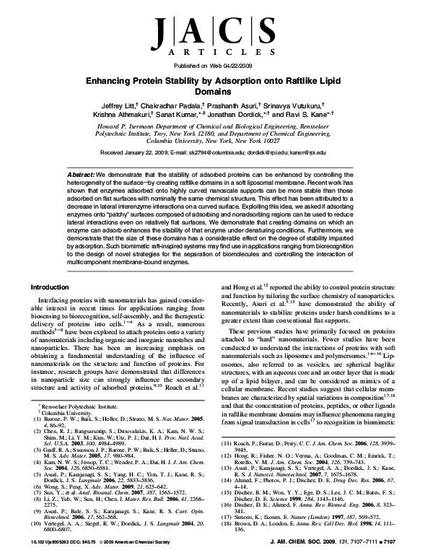
We demonstrate that the stability of adsorbed proteins can be enhanced by controlling the heterogeneity of the surface—by creating raftlike domains in a soft liposomal membrane. Recent work has shown that enzymes adsorbed onto highly curved nanoscale supports can be more stable than those adsorbed on flat surfaces with nominally the same chemical structure. This effect has been attributed to a decrease in lateral interenzyme interactions on a curved surface. Exploiting this idea, we asked if adsorbing enzymes onto “patchy” surfaces composed of adsorbing and nonadsorbing regions can be used to reduce lateral interactions even on relatively flat surfaces. We demonstrate that creating domains on which an enzyme can adsorb enhances the stability of that enzyme under denaturing conditions. Furthermore, we demonstrate that the size of these domains has a considerable effect on the degree of stability imparted by adsorption. Such biomimetic raft-inspired systems may find use in applications ranging from biorecognition to the design of novel strategies for the separation of biomolecules and controlling the interaction of multicomponent membrane-bound enzymes.
